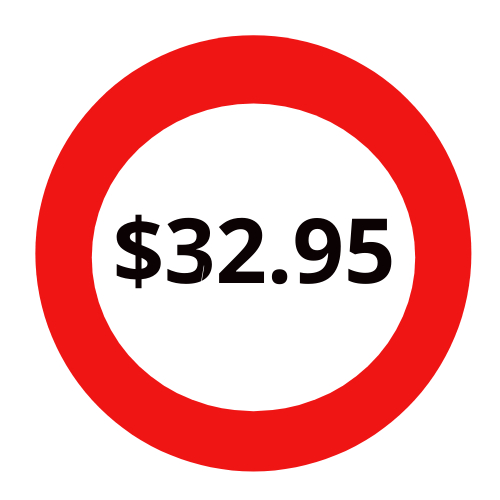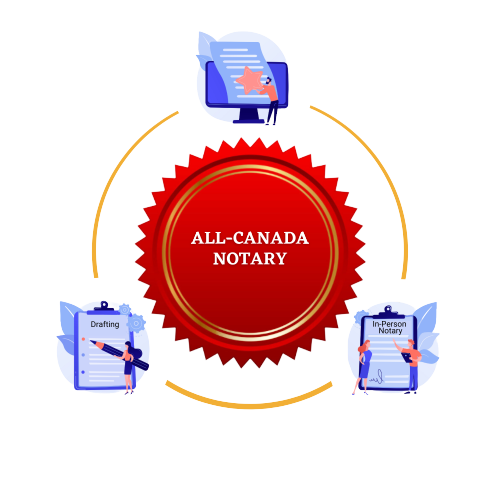What is a certified true copy of a document?
Certified true copies are essential documents that confirm the authenticity of an original document. They are used for various purposes, such as visa applications, job applications, and educational enrollment. In Canada, certified true copies must be in either English or French, the country’s official languages. However, there are situations when non-English and non-French documents need to be certified. This article will discuss non-English and non-French certified true copies in Canada and the process involved.
What if my document is not in English or French?
When documents are not in English or French and they need to be certified, the process is slightly different. In these cases, the document’s original language must be identified, and a certified translator must translate it into either English or French. The translator must also certify that the translated document is a true and accurate translation of the original document.
The certified translator must sign the translated document and provide their contact information, including their full name, address, telephone number, and email address. It’s essential to ensure that the translator is certified by a recognized organization or has the appropriate accreditation.

After the translation is complete, the original document and the translated document must be submitted for certification. The certification process involves a designated individual, such as a notary public, commissioner of oaths, or lawyer, confirming that the original document and the translated document are identical. The certifier must then sign and stamp the translated document, indicating that it is a certified true copy.
It’s important to note that the certifier must be independent of the translator and the individual submitting the documents. They must also not have a vested interest in the outcome of the document’s submission. This ensures that the certification process is fair, unbiased, and reliable.
In some cases, the original document may be in a language that is uncommon in Canada. In these situations, it may be challenging to find a certified translator who can translate the document into either English or French. In these cases, it’s essential to reach out to the embassy or consulate of the country of origin, as they may be able to assist in finding a certified translator.
What are the common types of certified true copies?
Common types of certified true copies are copies of important legal documents or identification, such as:
- Birth certificates
- Marriage certificates
- Death certificates
- Passports
- Driver’s licenses
- Immigration documents
- Educational transcripts and diplomas
- Professional licenses and certifications
- Wills and power of attorney documents
- Property deeds and mortgage documents
Should a translator be certified?
No, a translator does not need to be certified in order to provide a certified translation. However, in order for your documents to be deemed as complete, it is necessary to submit them along with an English or French translation that meets one of the following requirements: it should either be signed and stamped by a certified translator, or it should include an affidavit from the translator that is signed by a Notary Public.
Can a notary certify the translation?
Yes! If a Canadian notary is fluent in both languages they may be able to note that under their signature and seal. However, if the notary is not fluent in both languages, then a certified translation might be necessary.
Is it necessary to bring the original documents in order to obtain a certified true copy?
Yes, it is crucial to provide the original documents for the certification process. This is because the notary needs to verify every detail and ensure the accuracy of the copy. It should be noted that a mere photocopy, picture, or scanned copy of the document will not suffice for obtaining a certified true copy of the original document.
Who are certified translators in Canada?
Certified translators are professionals who have been accredited by the provincial or territorial organizations that oversee the translation industry. These organizations are members of the Canadian Translators, Terminologists and Interpreters Council (CTTIC), which is the national association that promotes the profession of translation and interpretation in Canada.
The following are some of the provincial and territorial organizations that certify translators in Canada:
- Ordre des traducteurs, terminologues et interprètes agréés du Québec (OTTIAQ) – Quebec
- Association of Translators and Interpreters of Ontario (ATIO) – Ontario
- Society of Translators and Interpreters of British Columbia (STIBC) – British Columbia
- Association of Translators and Interpreters of Manitoba (ATIM) – Manitoba
- Association of Translators and Interpreters of Saskatchewan (ATIS) – Saskatchewan
- Association of Translators and Interpreters of Alberta (ATIA) – Alberta
- Society of Translators and Interpreters of Newfoundland and Labrador (STINL) – Newfoundland and Labrador
- Association of Translators and Interpreters of the Northwest Territories (ATINT) – Northwest Territories
- Nunavut Interpreter/Translator Society (NITS) – Nunavut
- Yukon Translators Society (YTS) – Yukon
Can a Notary Public certify a true copy of a document without the signatory’s presence?
Yes. The Notary only needs the original document to be present. The Notary’s certification only confirms that the copy is an accurate reproduction of the original document, not that the original document itself is valid.
Is a copy of a certified copy a certified copy
No, a copy of a certified copy is not a certified copy. When you make a copy of a certified copy, the copy does not carry the certification of authenticity that the original certified copy has. Therefore, the copy of a certified copy is just a regular copy and does not have the same legal weight as a certified copy.
Who can certify a true photocopy of original documents?
In Canada, there are several individuals who are authorized to certify true copies of documents. These include:
- Notary Publics: A notary public is a public official who is authorized to witness and certify the authenticity of documents.
- Lawyers: A lawyer who is a member of a provincial or territorial law society can also certify true copies of documents.
- Commissioners of Oaths: A commissioner of oaths is a person authorized by the provincial or territorial government to witness and certify documents.
- Justices of the Peace: Justices of the peace are appointed by the provincial or territorial government and have the authority to certify true copies of documents.
- Peace Officers: Some peace officers, such as police officers, may also be authorized to certify true copies of documents.
Can I notarize certified true copies of documents remotely?
No. A certified try copies of original paper or printed documents cannot be notarized online.
In conclusion, certified true copies are essential documents that confirm the authenticity of an original document. In Canada, certified true copies must be in either English or French, the country’s official languages. However, there are situations when non-English and non-French documents need to be certified. In these cases, the original document must be translated by a certified translator and then certified by a designated individual. It’s essential to ensure that the translator and the certifier are qualified and independent to ensure that the certification process is reliable and fair.
How Can All-Canada Notary Help You?
All-Canada Notary is a network of notaries public. If you need a certified true copy, contact us. Search our offices near you.
At All-Canada Notary, we operate physical and virtual notary services. You can book your appointment online, use our online notary service or walk into any of our in-person locations any day.

